The 2017 ACR/ARHP Annual Meeting in San Diego will bring together more than 16,000 rheumatologists, rheumatology health professionals, fellows-in-training, and exhibitors from more than 100 countries to learn about the latest scientific advances, clinical issues, professional development, and more.
Within this year’s primary educational tracks, attendees will find sub-specialty sessions targeted to specific areas of interest—educators, pediatric rheumatologists, health professionals, practice managers, and fellows-in-training. Members of the Annual Meeting Program Committee and recognized leaders in this year’s sub-specialty areas offered their thoughts on this year’s program and some of their recommendations for “must-attend” sessions.
Educators
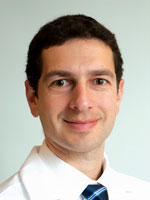
The educator sessions at the ACR/ARHP Annual Meeting help rheumatology educators stay at the forefront of developments in medical education, both within rheumatology and the broader field, to introduce educators to novel and emerging educational techniques and to continue to build a community of educators within the field.
“This year, the educator sessions will focus on two main themes—how to teach and incorporate basic science into medical education effectively, and tools for advancement in medical education careers,” said Eli Miloslavsky, MD, of Massachusetts General Hospital. “These sessions provide terrific opportunities to interact with other educators and share ideas about teaching techniques, talk about challenges you’re facing, and discuss potential collaborations.”
Among the sessions Dr. Miloslavsky recommends is Spicing up Science Education: How to Effectively Incorporate Science into Med Ed on Sunday, Nov. 5, at 2:30 pm.
Another session Dr. Miloslavsky encourages his colleagues to attend is Building a Career as a Clinician Educator: Tools for Success on Tuesday, Nov. 7, at 2:30 pm. Other sessions Dr. Miloslavsky believes will be of interest to educators include Medical Education Year in Review on Sunday, Nov. 5, at 1:00 pm; E-Learning Methods & Educational Technology in Rheumatology Education on Tuesday, Nov.7, at 8:30 am; and Innovative Educators, Novel Techniques: A Rheumatology Research Foundation Special Session on Wednesday, Nov. 8, at 9:00 am.
Pediatrics
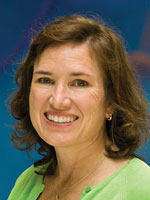
The pediatrics- focused sessions at the ACR/ARHP Annual Meeting will appeal to a broad range of attendees, including those practitioners who may not treat just children and adolescents, according to Anne Stevens, MD, PhD, of the University of Washington.
“We all must worry about those patients who were never diagnosed in childhood, but who turn up later,” Dr. Stevens said. “If more people can see what we see, because we see these patients more often than anyone else, they can better recognize the signs of these diseases.”
The pediatric sessions at this year’s meeting will feature talks by experts on pediatric rheumatic diseases that are just beginning to be explored and understood, including Pediatric Vasculitis: Insights From ARCHiVE and ADA2 Deficiency on Monday, Nov. 6, at 8:30 am.
“Pediatric vasculitis caused by ADA2 deficiency can cause stroke, but if you can recognize it early, you can successfully treat these patients,” Dr. Stevens said. “This session will be of great interest to both scientists and clinicians.”
Another session Dr. Stevens highly recommends is What Can We Learn From Monogenic Interferonopathies? on Sunday, Nov. 5, at 8:30 am. Other sessions Dr. Stevens recommends include Juvenile Dermatomyositis: Updates in Clinical Management & Biomarker Development on Sunday, Nov. 5, at 11:00 am; Microbiota Alteration in Juvenile Idiopathic Arthritis on Tuesday, Nov. 7, at 11:00 am; and Orthopedic Management in Pediatric Rheumatology: When to Intervene Surgically? on Tuesday, Nov. 7, at 2:30 pm.
Health Professionals
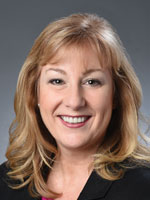
The ACR/ARHP Annual Meeting not only offers rheumatology health professionals valuable, up-to-date information related to improving patient care, but also provides invaluable networking opportunities with rheumatology specialists from around the world.
“The ARHP is unique in that we represent several disciplines, such as nurses, physician assistants, researchers, epidemiologists, psychologists, sociologists, office managers, and rehabilitation specialists,” said Susan Chrostowski, DNP, ANP-C, nurse practitioner at Rheumatology Associates of Texas. “The educational and networking sessions at the ACR/ARHP Annual Meeting are designed for all disciplines, allowing health professionals to interact, share ideas, and combine resources.”
Among the many sessions of interest to health professionals, Chrostowski recommends Pharma Update: Safety, New Indications, Latest Approvals, on Monday, Nov. 6, at 2:30 pm; Cannabis in Society & Medical Practice, on Monday, Nov. 6, at 4:30 pm; and the always-popular Immunology Boot Camp, with sessions on Sunday, Nov. 5, at 11:00 am, Monday, Nov. 6, at 7:30 am, and Tuesday, Nov. 7, at 7:30 am.
As a nurse and practice manager, Stacey Busch, RN, BSN, MA, CRHC, of the Family Arthritis Center, looks forward to sessions that will help rheumatology health professionals keep up with the rapidly changing landscape of patient care.
Some of the sessions she believes will be especially helpful include Your New Role in the Era of MACRA: Tips & Tools for Rheumatology Staff on Sunday, Nov. 5, at 4:30 pm; Reshaping the Relationship Between Physicians & PBMs on Sunday, Nov. 5, at 11:00 am; Improve Office Dynamics: What’s Your Communication Sign? on Sunday, Nov. 5, at 2:30 pm; and DMARDs & Biologics: What Rheumatology Nurses Should Know on Tuesday, Nov. 7, at 2:30 pm.
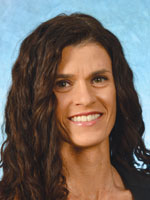
“And the networking forums are invaluable, both for new attendees and for those just wishing to meet others who have similar interests,” Busch said. “The ARHP Discipline Round Tables on Sunday, Nov. 5, at 12:30 pm, and Topic Round Tables, on Monday, Nov. 6, at 12:00 pm, are great opportunities to meet and exchange ideas with members from all over the world.”
For those attendees whose interests lie primarily in research, Rebecca (Becki) Cleveland, PhD, of the Thurston Arthritis Research Center, says the Annual Meeting is the perfect place to get up to date on what is happening in all aspects of rheumatology.
One of the many sessions Dr. Cleveland believes will be of great interest to researchers is Phenotyping Hip & Knee OA: Toward Better Clinical Care & Patient Outcomes on Tuesday, Nov. 7, at 2:30 pm.
Practice Managers
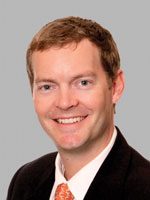
The ACR/ARHP Annual Meeting offers numerous benefits directed toward office and practice managers, including the opportunity to network with other practice managers, managing partners, and vendor/manufacturer leadership, said Colin C. Edgerton, MD, of Articularis Healthcare.
“As the premier rheumatology meeting in the world, the ACR/ARHP Annual Meeting brings together the leadership of most, if not all, of the industries related to the provision of rheumatology care, providing an excellent opportunity for managers to communicate with these individuals,” Dr. Edgerton said. “Additionally, the meeting offers the most up-to-date legislative and regulatory information for managers, which is a key component to practice management in today’s evolving healthcare landscape.”
Some of the key sessions of interest to practice managers are the pre-meeting ACR Practice Management Course Refocus Your Practice: Innovation, Improvement & Insights on Saturday, Nov. 4, at 7:00 am; Biosimilar Medicine: Changing Landscape in Healthcare on Monday, Nov. 6, at 9:00 am; and Performance-Based Contracting: Emerging Issues & Considerations on Tuesday, Nov. 7, at 9:00 am.
Dr. Edgerton also highly recommends practice managers attend Reshaping the Relationship Between Physicians & PBMs on Sunday, Nov. 5, at 11:00 am.
Fellows-in-Training
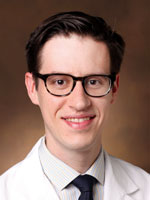
The Annual Meeting provides fellows-in-training with access to cutting-edge clinical and basic science across the breadth of rheumatology, as well as the opportunity to network among their peers and leading clinicians and scientists in the field.
“Whether you’re a fellow planning a career as a clinical educator, physician scientist, or clinical expert in private practice, the Annual Meeting provides ample resources to help you meet your goals,” said Kevin Byram, MD, of Vanderbilt University Medical Center.
From a professional development standpoint, Dr. Byram recommends the session Mentorship for the Next Generation of Rheums: Current State & Next Steps on Tuesday, Nov. 7, at 7:30 am, which will offer advice on ways to maximize the mentee-mentor relationship. On the clinical side, one of the many sessions he looks forward to attending is Paging Dr. Lupus: Managing Clinical Emergencies in Patients with SLE on Sunday, Nov. 5, at 1:00 pm, which will help fellows prepare for evaluating complicated patients in the hospital.
Dr. Byram also encourages fellows to make time in their schedules for many of the meeting’s annual favorites, including the Jeopardy-style Knowledge Bowl, with the preliminary round on Sunday, Nov. 5, at 12:45 pm and the final round on Monday, Nov. 6, at 11 am; the Great Debate, which will focus on biosimilars this year, on Sunday, Nov. 5, at 2:30 pm; and the Year In Review, offering curated presentations of clinical and basic science highlights from the past year, on Sunday, Nov. 5, at 7:30 am.
